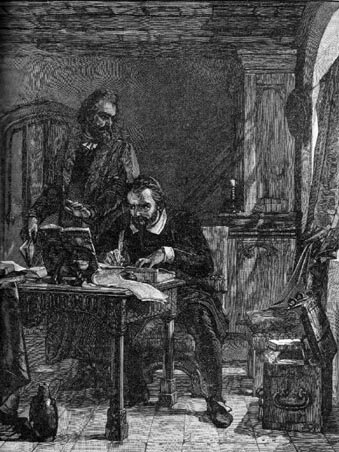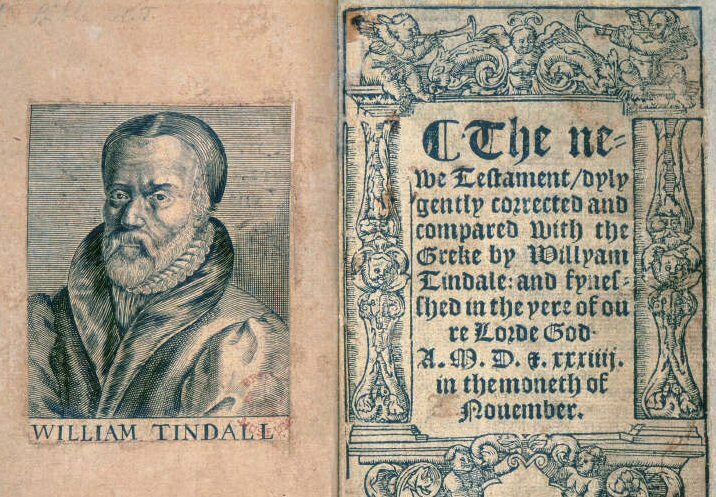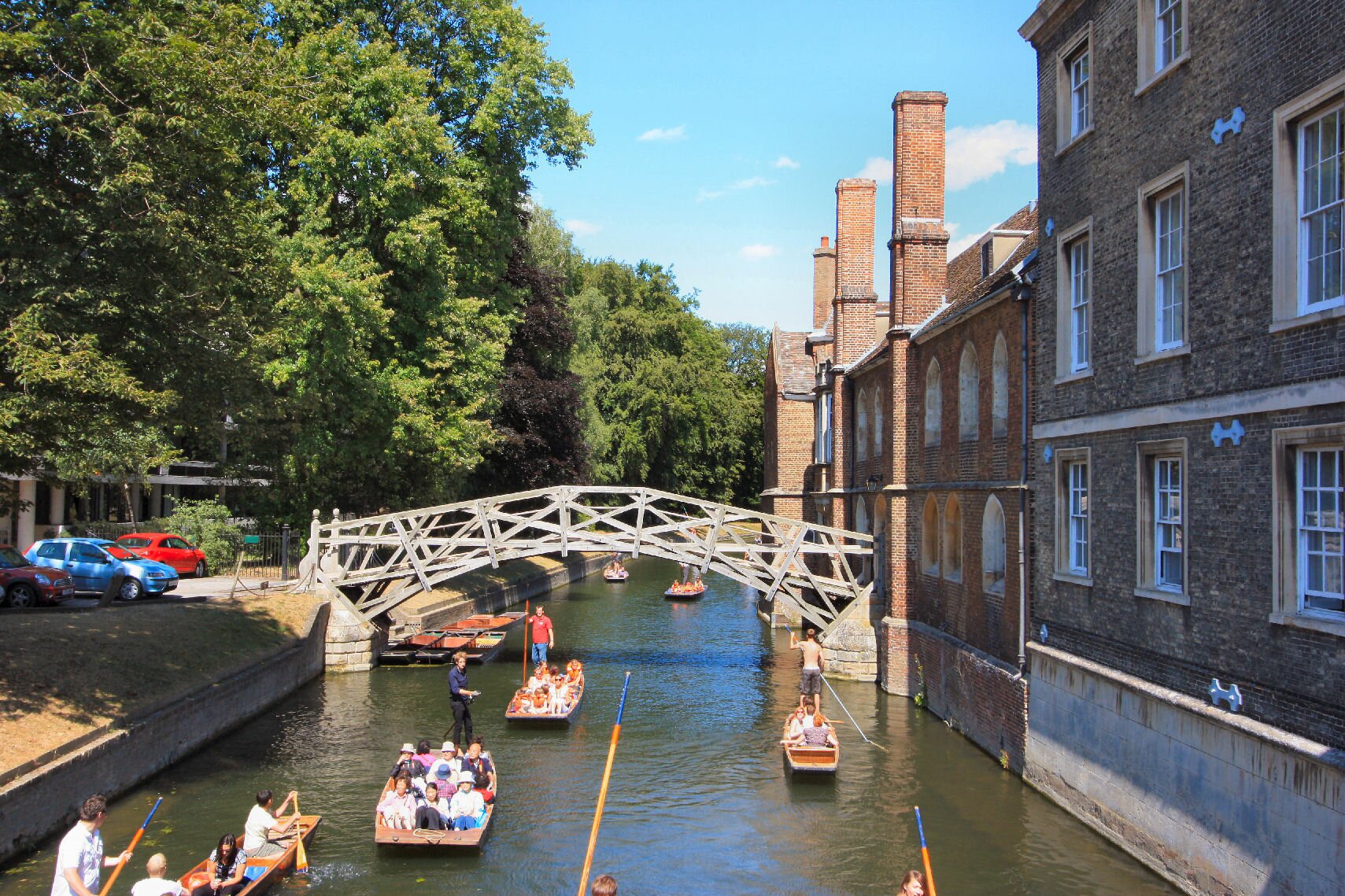 Keith Si
Keith Si
sman Ramsey church of Christ, England - Traces of the Kingdom

William Tindale, Englands most famous Christian
Variant spelling - Tindale, Tindall or Tyndale.
Gal 2:4 And that because of false brethren unawares brought in, who came in privily to spy out our liberty which we have in Christ Jesus, that they might bring us into bondage:
What other histories don't tell you!..
The teaching of William Tyndale (died,1536) on Baptism was that the washinge preacheth unto us that we ar clensed wyth Christes bloud shedynge which was an offering and a satisfaction for the synne of al that repent and beleve consentynge and submyttyne themselves unto the wyl of God. The plungynge into the water sygnyfyeth that we die and are buried with Chryst as coserning ye old life of synne which is Ada (Adam). And the pulling out again sygnyfyeth that we ryse again with Christe in a new lyfeful of the holye gooste which shal teach us, and gyde us, and work the wyll of God in us; as thou seest Rom 6. Quoted from; The obedience of all degrees proved by Gods worde, imprinted by Wyllyam Copland, London, 1561.
In modern English it reads:
The washing without the word helpeth not: but through the word it purifieth and cleanseth us: as thou readest, Ephesians 5, how Christ cleanseth the congregation in the fountain of water through the word. The word is the promise that God hath made. Now as a preacher, in preaching the word of God, sayeth the hearers that believe; so doth the washing, in that it preacheth and representeth unto us the promise that God hath made unto us in Christ. The washing preacheth unto us, that we are cleansed with Christ’s blood-shedding; which was an offering, and a satisfaction, for the sin of all that repent and believe, consenting and submitting themselves unto the will of God. The plunging into the water signifieth that we die, and are buried with Christ, as concerning the old life of sin, which is Adam. And the pulling out again signifieth that we rise again with Christ in a new life, full of the Holy Ghost, which shall teach us and guide us, and work the will of God in us, as thou seest, Romans 6.
Tyndale also wrote:
"Repentance goeth before faith, and prepareth the way to Christ, and to the promises. For Christ cometh not but unto them that see their sins in the law, and repent. Repentance, that is to say, this mourning and sorrow of the heart, lasteth all our lives long: for we find ourselves, all our lives long, too weak for God’s law, and therefore sorrow and mourn, longing for strength. Repentance is no sacrament: as faith, hope, love, and knowledge of a man’s sins, are not to be called sacraments. For they are spiritual and invisible. Now must a sacrament be an outward sign that may be seen, to signify, to represent, and to put a man in remembrance of some spiritual promise, which cannot be seen but by faith only. Repentance, and all the good deeds which accompany repentance, to slay the lusts of the flesh, are signified by baptism. ‘For Paul saith, Romans 6, as it is above rehearsed: “Remember ye not (saith he), that all we which are baptized in the name of Christ Jesus are baptized to die with him? We are buried with him in baptism for to die;” that is, to kill the lusts and the rebellion which remaineth in the flesh. And after that he saith, “Ye are dead, as concerning sin, but live unto God through Christ Jesus our Lord.” If thou look on the profession of our hearts, and on the Spirit and forgiveness which we have received through Christ’s merits, we are full dead: but if thou look on the rebellion of the flesh, we do but begin to die, and to be baptized, that is, to drown and quench the lusts, and are full baptized at the last minute of death. And as concerning the working of the Spirit, we begin to live, and grow every day more and more, both in knowledge and also in godly living, according as the lusts abate: as a child receiveth the full soul at the first day, yet groweth daily in the operations and works thereof".
Comments on Tyndale, faith-only proponents lift Tyndale totally out of context and claim opposite Tyndale's reasoning on salvation. Tyndale wrote with the fires of the stake very near, yet he taught plainly and succinctly, as was his manner, against infant baptism and dead rites of man's religion which attempt, as counterfeits, to supplant faithful obedience to that living Book of books so long held captive. He did not throw out baptism as unnecessary, but instead showed forth true baptism by contrasting the false baptism of priestcraft. "As a child receiveth the full soul at the first day," in this we see Tyndale well understood the time at which the Christian is born again a new child of God. "and whosoever doth knowledge his sins, receiveth forgiveness, as saith John, in the first of his first epistle: If we knowledge our sins, he is faithful and just to forgive us our sins, and to cleanse us from all unrighteousness; that is, because he hath promised, he must for his truth’s sake do it. This confession is necessary all our lives long, as is repentance. And as thou understandest of repentance, so understand of this confession; for it is likewise included in the sacrament of baptism. For we always repent, and always knowledge or confess our sins unto God, and yet despair not; but remember that we are washed in Christ’s blood: which thing our baptism doth represent and signify unto us."
Many Protestants claim Tyndale as either some kind of proto-Calvinist or heavily influenced by Luther, and neither is true at all, as the above excerpts clearly show. I agree, he being influenced by the Lollards (Christians) of Wales, which explains his tenacious independence from man-made creeds and signs and symbols, and his patient preaching of the gospel with a deep understanding of the Word.
From what we know, it would seem Tynedale was a Christian and from a Christian family, he was licensed as a priest in the Catholic church (the only way at that time a man could legally preach the Gospel in England). He taught that only those who believe may be baptised into Christ for the remission of sins and thereupon they could partake of the Lords supper. It seem that Tynedales religious background may have come from the welsh Lollards. Again it would seem Tynedales brother was a faithful member of the Lords church and his brothers children continued in the faith.
Tyndale's New Testament was brought into England and distributed by members of the churches of Christ in Bow-Lane and Coleman Street, London, also the church located at Canterbury had hand in distributing his materials.
In London at this time was the 'Society of Christian Brethren' which seems to have been an organised society with its own accounts and auditors. It subsidised people such William Tyndale, and it underwrote the dangerous but not unprofitable godly trade of smuggling into this country his and others books. This society it also seems to have held bible studies where materials were handed out. Henry Monmouth was a leading member of the society being a wealthy wool merchant. Knowing that Tyndale's bibles were distributed and smuggled in by members of the churches of Christ, it seems entirely feasible that some brethren had set up this organisation to finance this project, separate from the Lord's Church. There is also some evidence this 'Society of Christian Brethren' which was run by merchants, who were brethren, had existed for many years who at first distributed Lollard materials which were hand written. The Lollard Bibles were extensively copied and circulated around the country in spite of the fact that the church systematically burned thousands of them. More Lollard (Wycliffe), Bibles have survived than any other medieval manuscript, two hundred and thirty exist. This despite the constant burnings of the bible and punishment of the owners. The closest are manuscripts by Chaucer, which number sixty! There is no evidence the ' Society of Christian Brethren' was a missionary society, it existed simply as a project to finance the writing, printing and distribution of materials which were paid for to provide the required funding. Churches and individual Christians seem to have given away the books for free having purchased them. Other book sellers sold the books for profit, the arrangement seemed to be very effective.
Tyndale was friends with the Tracy family, who were related to James Bainham, a preacher of the Bow-Lane congregation, which gives another link to the Lord's people in London.
Despite attempts to make Tyndale a Lutheran, reformer or Anglican, there is no firm evidence. He plagiarised some of Luther's thoughts, but was no friend of Luther or any of the reformers. Tyndale was a restorationist, not a reformer.
Tyndales N.T. which first appeared during 1526 was made directly from the Greek third edition of Erasmus, and was far superior to Wycliffes old Vulgate orientated Bible, this anyway was now out of date and difficult to find. Tyndales N.T. was mass printed and many of the Catholic doctrines could be seen to be totally without any Bible authority.
The established church was furious with his translation which they claimed was inaccurate (Thomas Moore) which certainly lead to his death.
Tyndale's translation of five Greek words enormously angered his enemies. In each case his translation was absolutely accurate to the Greek. He translated the Greek word presbuteros as “elder,” whereas the church had always translated it as “priest”; he translated agape as “love,” where the church had always had it as “charity”; he translated ekklesia as “congregation,” whereas the church had had it as “church”; and he translated exomologeo as “acknowledge,” where the church used “confess.” In that era peoples idea of Church was the all powerful Roman Catholic system, not the idea of the people of God, the congregation..
Tyndale translated the Greek word metanoeo as “repent.” Metanoeo is a classical and New Testament Greek word meaning “a change in the mind.” It means that sort of complete change that can come over people’s minds and change the direction of their lives. The Latin church had always translated that as paenitentiam agite, meaning “do penance.” Now, to do penance means paying money, for a wealthy land owner, building (funding) a new monastery or church building, so they didn’t want the New Testament to be saying “repent.” In fact, in the Catholic system far from repent, as long as the wealthy were paying into the coffers they could continue blissfully to sin. From the Catholic point of view Tyndale had totally mistranslated their words "do penance" and were absolutely horrified!

William Tyndale translating the Bible, taken from an old oil painting.
Wycliffe (English bible based on the Jeromes Latin Vulgate and other Latin manuscripts, Greek being largely unavailable in 1388).
Mark 16:16
and preche the gospel to eche creature who that bileueth and is baptisid schal be saaf but he that bileueth not shal be dampned
Acts 2:38
britheren what schulen we do and petre seide to hem do ye penaunce and eche of you be baptisid in the name of jhesu crist in to remissioun of your synnes
Romans 6:4
for we ben togidere bired with hym bi baptym in to deth that as crist aroos fro deth bi the glorie of the fadir so walke we in a newnesse of lijf
Tyndale, English translation from the Greek of Erasmus. 1534 edition. 1989 edition by C Daniell.
Mark 16:16
and preach the glad tidings to all creatures: he that believeth, and is baptised, shall be saved. But he that believeth not, shall be damned.
Acts 2:28
Brethren, what shall we do? And Peter said unto them: repent, and be baptised every one of you in the name of Jesus Christ, for the remission of sins.
Romans 6:4
We are buried with Him by baptism, for to die, that likewise as Christ was raised up from death by the glory of the Father: even so we also should walk in a new life.
Looking at the above translations of the Scriptures and the background of the church of that time it is difficult to imagine how Tyndale could have believed in infant sprinkling and not in believers immersion.
This is a very difficult time for conventional denominational historians and most of what happened whilst recorded is not used by church historians and therefore unknown.
Tyndale was tried on a charge of heresy in 1536 at Antwerp and condemned to the stake, despite Thomas Cromwell's intercession on his behalf. On 6 October 1536 Tyndale was strangled first, but has the flames took hold he recovered consciousness, he died in the flames of Catholic persecution, for translating the Bible into English. His final words reportedly were, "Oh Lord, open the King of England's eyes", later Henry V111 would allow bibles into churches.
Tyndale was burned, for his heretical beliefs including alleged Anabaptist views which he had been accused by Sir Thomas More. More had died by beheading in the previous year as a traitor after falling out with Henry VIII.
In later years Tyndale's relatives, Llewellyn and Hezekiah Tyndale, were members of the church of Christ meeting in Abergaverney, South Wales, not far from Tyndale's Gloucestershire home.
Below, frontispiece and title page of Tyndale's Bible.

Below, a picture of the 'Backs', Queens College and the 'Mathematical' Bridge, Cambridge, where Desiderius, or Erasmus as he preferred to be known, prepared his Greek New Testament. This led to the Reformation starting in England at Cambridge. It also prepared the way for Tyndale's study of Greek, at Cambridge which resulted in his translation of the New Testament scriptures, in English from the Greek of Erasmus.

Next Page - Tyndale, Bibles, Bishops and Guns



